Fat Shaming and Colorism
Trying to Eliminate Negative Complexes in Non-Western Cultures
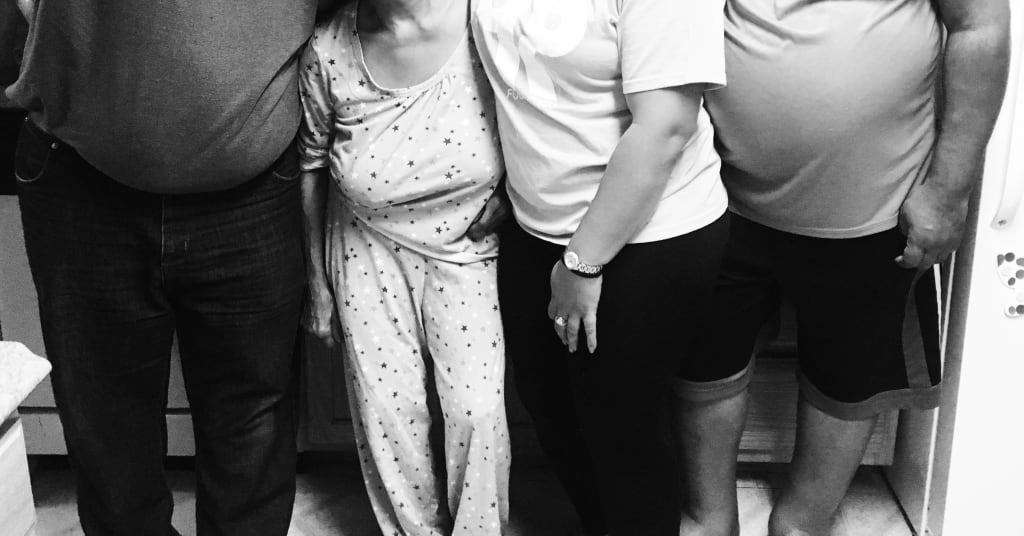
What I have begun to realize and even started to study since I have been in Haiti is the complexes which people face. I’ve realized that many Haitian people put unnatural amounts of thought into very old, American, ideals of beauty. What concerns me more is not what they are focused on, but why they are still focused on these clearly outdated ways of thinking. I’m not sure if it is lack of exposure to information that keeps these ideals running, but I have started to explain that things in the Western world are different. Not only am I comfortable with my body image and weight, but I am comfortable in my skin as well. I think part of the colorist complex comes from the notion that black is a dark color and not understood as a race or culture.
My Reality
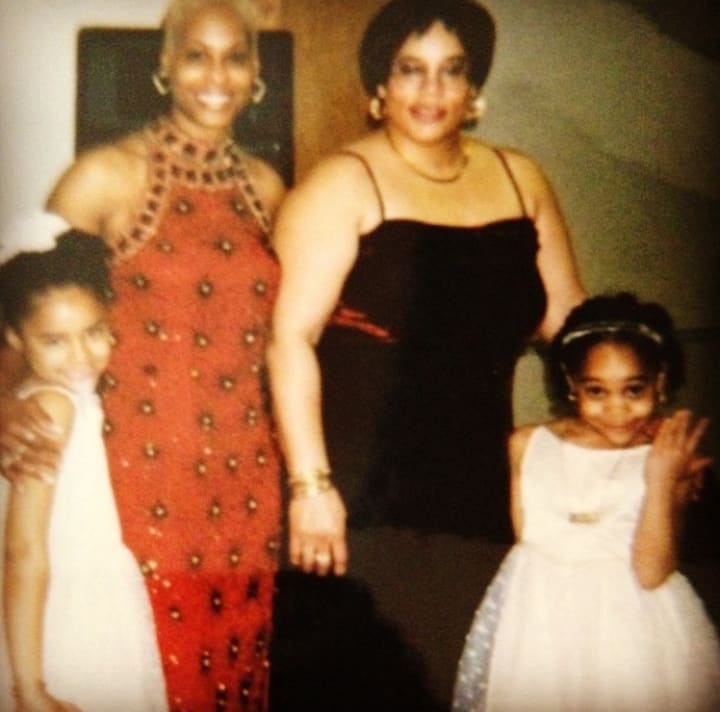
Bold and Beautiful, Circa 1999
Growing up, I listened to women in my life beat themselves up over how “fat” they were and although I would say “no you’re not, stop being mean to yourself,” there was only so much a child could take or understand. Where I saw beauty, they did not and I began to hate my body just the same. For most of my life, I wasn’t even fat. I was muscular. I hated my arms because they were “manly,” and I hated my legs because they seemed unnatural. I was involved in every sport, so of course my body was fit in ways that others were not, but I was bigger than all of my friends, and that’s all I could see. It didn’t matter to me that muscle weighs more than fat, but that by weight and height charts, I was technically obese.
Now that I am older and I love myself, flaws and all, I understand how painful it is to lack self confidence and I have witnessed that pain tear apart beautiful women. I had to develop my own sense of contentment and teach myself that I am healthy, I am beautiful, and I am content with the way that I look.
Foreign Reality
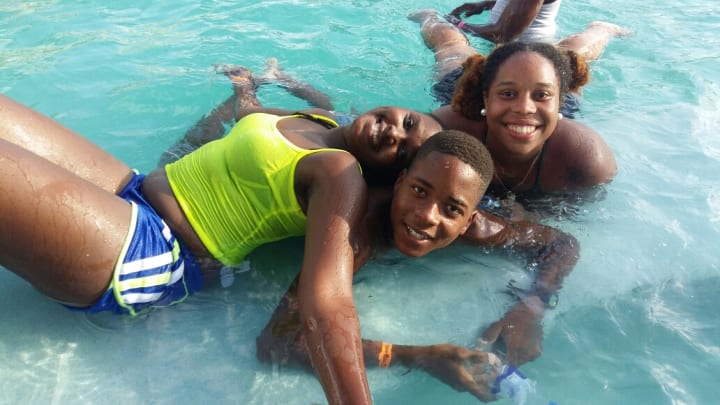
Loving My Time in Haiti, August 2018
So what will it take for other Black and colored cultures to do the same? Why is it that in Haiti, we are still idolizing size two white women as the standard of beauty? In 2013, Rehabs.com did a study that concluded that even Barbie, as well known and loved in America as she is, is “anatomically impossible” (Goldstein, 2013). Her height, weight, and body part sizes and proportions were found to be unrealistic and Barbie was pronounced an unhealthy role model for little girls and boys. Since then, Barbie dolls have been re-introduced to the world in tall, curvy, and plus sized figures that show more accurate and obtainable body images. Barbie’s melanin scale has also increased, portraying a number of different skin tones and ethnicities that convey real women in the world, and not just 1950s white America.
All of this is to get to my point about COMPLEXES. They are real and entirely too painful ladies and gentleman! Fat shaming is real. Colorism in the Black community is real. Self-love and self-actualization are processes that take time and dedication. Unfortunately, some Black cultures have not yet realized just how beautiful they are in all shapes, sizes and types.
Since I’ve been in Haiti, I’ve been called “fat,” to my face, by several people and I have not yet figured out if people are being rude, or it’s just socially acceptable to be blatantly disrespectful. The truth hurts right? Anyways, it seems as if the same people who are telling me that I’m fat seem to be very caught up in being extremely thin. They do not eat much and they are constantly checking themselves out in the mirror, sucking in their stomachs to seem even more thin. “I’m small,” they repeat. I just watch because to me it is foolish to want to be so thin. Some people are naturally smaller and would kill to have some weight in all the right places.
I don't think it bothers me that people here are calling me fat because I know I'm not huge, but it does bother me to see other people being labeled in this way and they are accepting of it and identifying themselves by their size and not what they can offer to the world. It pains me to watch and although it seems as if it's okay in the culture, you can tell that words and labels hurt them too. Nobody wants to be negatively different from the rest.
The Truth About Body Image
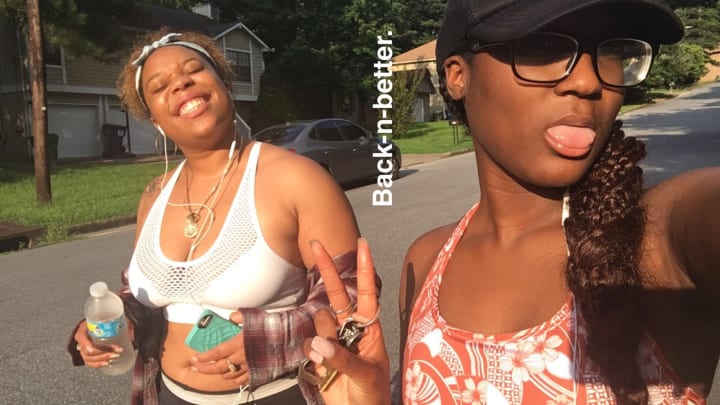
Positive Physical and Mental Health
A 2017 article by Rachel Schultz on Shape.com states:
“Considering a study in the International Journal of Obesity found people's belief that weight is controllable, ideas around the real health risks of being fat, and their tendency to weight discriminate was directly related to whether they read and watched media that was either fat positive or fat negative.
"Plus, the more popular the body positivity movement becomes, particularly on social media, the more the world is exposed to how real women of every shape and size eat and exercise in order to maintain their definition of beauty. Day after day, this normalization of what is truly normal helps take back the power that bullies thought a three-letter word should hold.” (Schultz, 2017)
What's the Deal with Color?
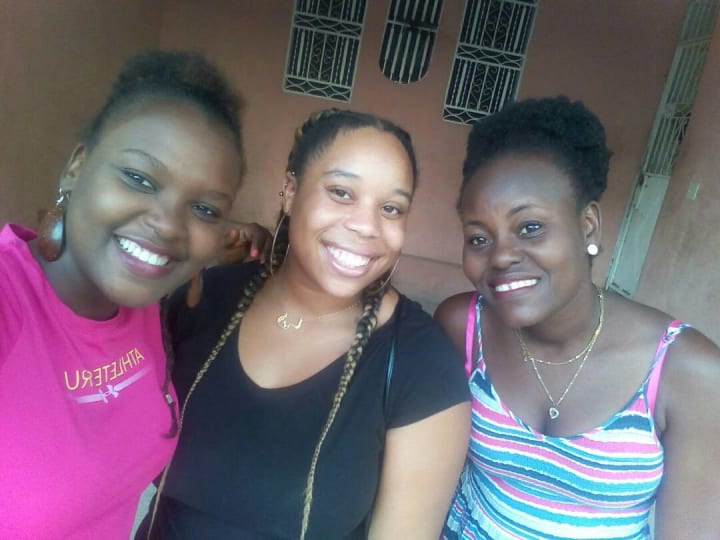
Melanin Wins
Next, I remember going to the store when I was young and asking for the white dolls only. They were beautiful. I remember telling my mother that I didn’t want to be dark like my grandmother or my father, and as a child, I didn’t understand why I felt that way or how much that must have hurt to hear. I have no idea where I learned that dark was ugly and light was better. I remember being in high school and people automatically assumed that I thought I was better than others… Not because I was smart, or pretty, but because I had light skin and my hair was long.
My HBCU is where I learned to love everything that was magnificently Black about me. My HBCU taught me my roots and helped me to define who I am, not as a light skin woman, but as a powerful and dynamic Black woman. I am proud to be Black and I am more proud that recent cultural movements are calling to support all things Black and beautiful!
“Frequent sightings of dark skinned people portrayed negatively in the media is heavily exploited, while light skinned and non-black individuals are portrayed more positively. These kind of pre-judgements negatively impact the African American community and prevents the culture from moving forward.” (Campbell, 2016).
To me, this is any colored community. Not just African Americans or Black people in America. I noticed the other day that a friend of mine was applying a lightening cream to her face. I thought maybe it was for dark marks or blemishes, because I’ve done that too. After I’m eaten alive by mosquitoes, I use creams such as Ambi to even out my skin and to eliminate the bite marks. Cool. I realized that my friend was not just using the cream for blemishes when she pointed out that I am very light and she is getting light too. She whispered the name of somebody to me who she feels is “black.”
I explained to her that nothing is wrong with having darker skin. Melanin, in all its shades is amazing. I explained that I am Black, even though my skin is more fair. My features and hair textures are very similar to those of her culture. “Black is beautiful and powerful,” I explained, “in all shades.” It is truly my hope and prayer for her, that she begins to not only realize that, but believe it.
My Thoughts
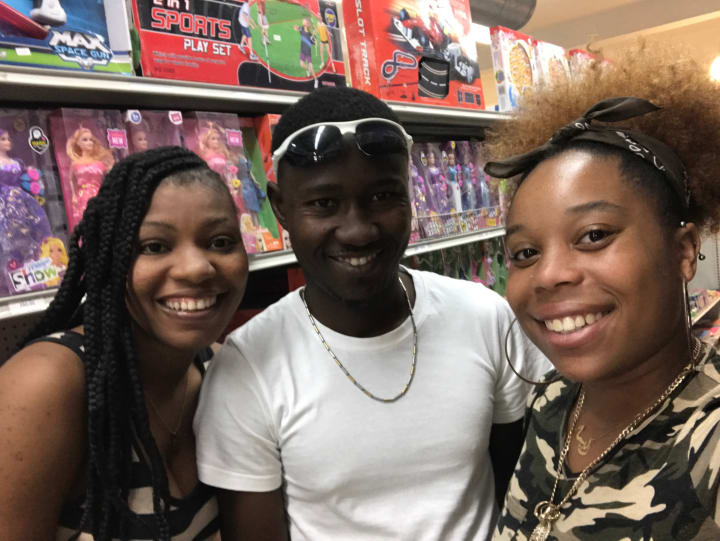
Friends For Now, Friends Forever
Many people, especially young people, that I have met in Haiti seem to think that America is really the land of the free. All too often, you hear about people getting married as their way into the states and when, or if they come home, they are changed. They come back with developed notions of laziness and showing off, when in reality, they do not have much and are not truly happy. They go, searching for a lifestyle that does not exist, or cannot exist forever. America is portrayed as lavishly unrealistic, and I wish the media would stop that. I have heard Haitian men say that they do not like Haitian women, but are more attracted to Americans. That kills me. To hear any Black man say that they do not love Black women is disgusting. I am not against interracial couples, but to be attracted to other races and to hate who you are as a person are two different stories. You cannot hate the women that birthed and raised you without hating yourself.
Again, self-love is a process; for women and for men. While I am here, I help with the house work that needs to be done and I explain that in my household, I cook, clean AND go to work every day. Let’s not forget that I work two jobs every day. I am not just here in Haiti to play the superhero card. I am not here to save Haiti, but I am here to teach. I am here primarily to teach English as a Second Language (ESL), but I also hope to teach about the evolution of culture and growing in self-love and self-worth. I cannot eliminate years of negative media, fat shaming and false portrayal of dark skin, but I can open the doors to have the conversation. I can be thick and the best Black I can be, every day and show people that I am so proud, blessed, and honored to be who I am. Every day, I try to make the people that I encounter feel the same. I wish that all colored cultures loved themselves the way that I love them.
Be happy, be natural, be free.
About the Creator
Alyssa Renee
Hey, I'm Alyssa Renee! I am an artist, blogger, teacher, philanthropist and travel enthusiast that needs a new platform to talk about life! I'm excited to share tips and goals and I look forward to growing with my readers.

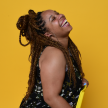


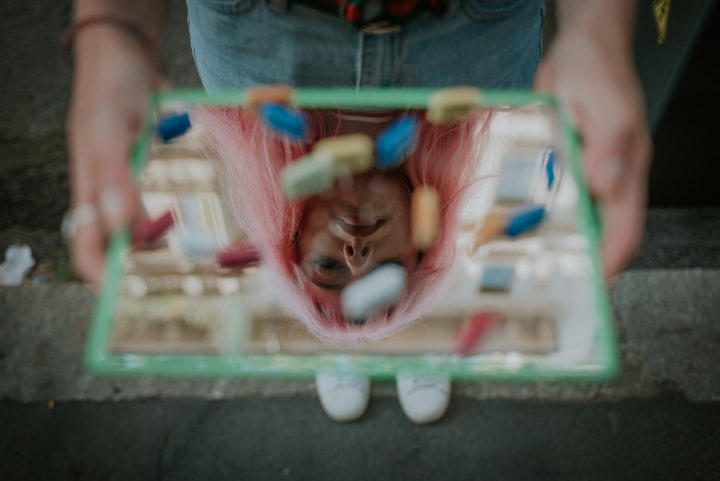

Comments
There are no comments for this story
Be the first to respond and start the conversation.